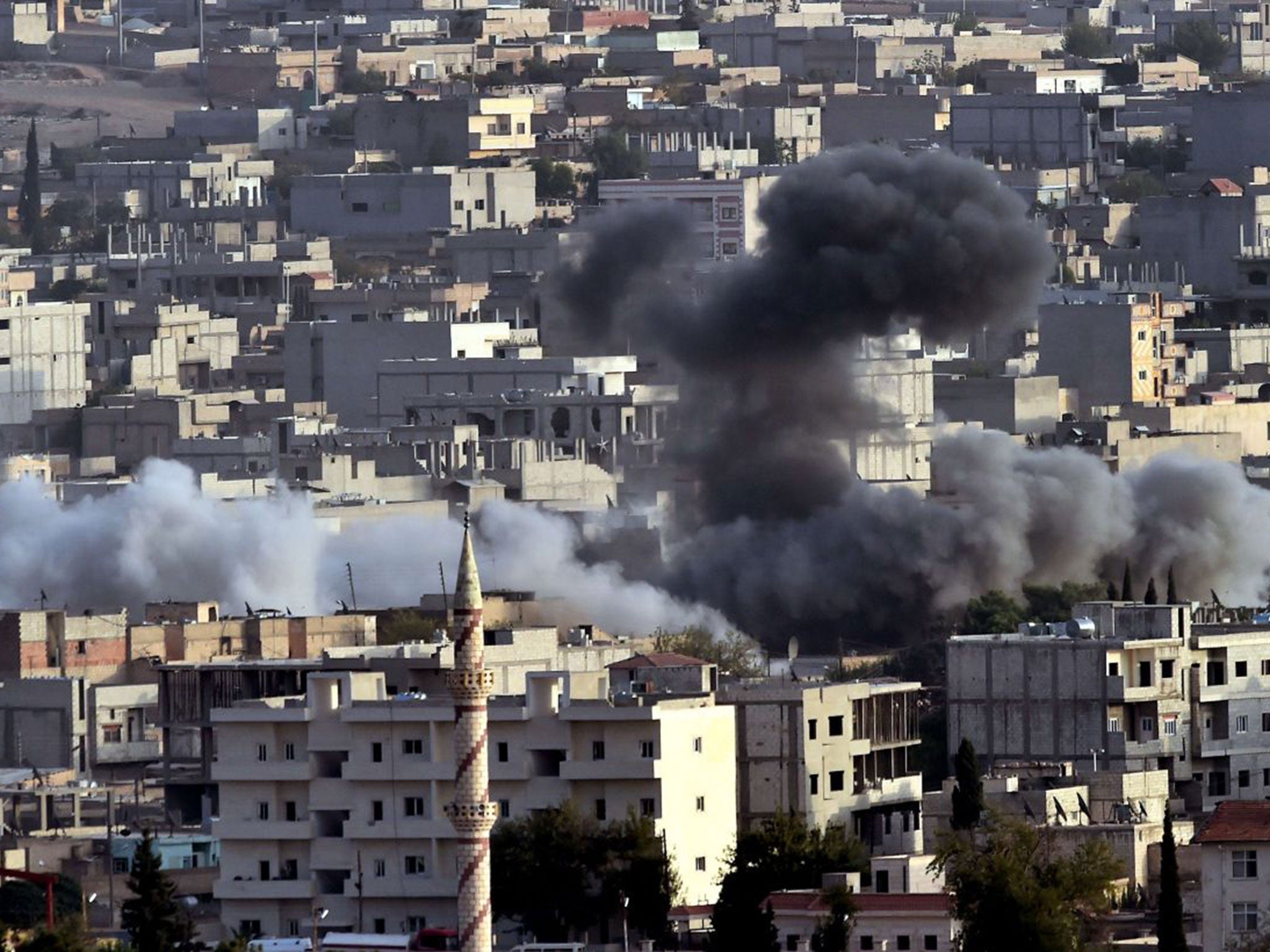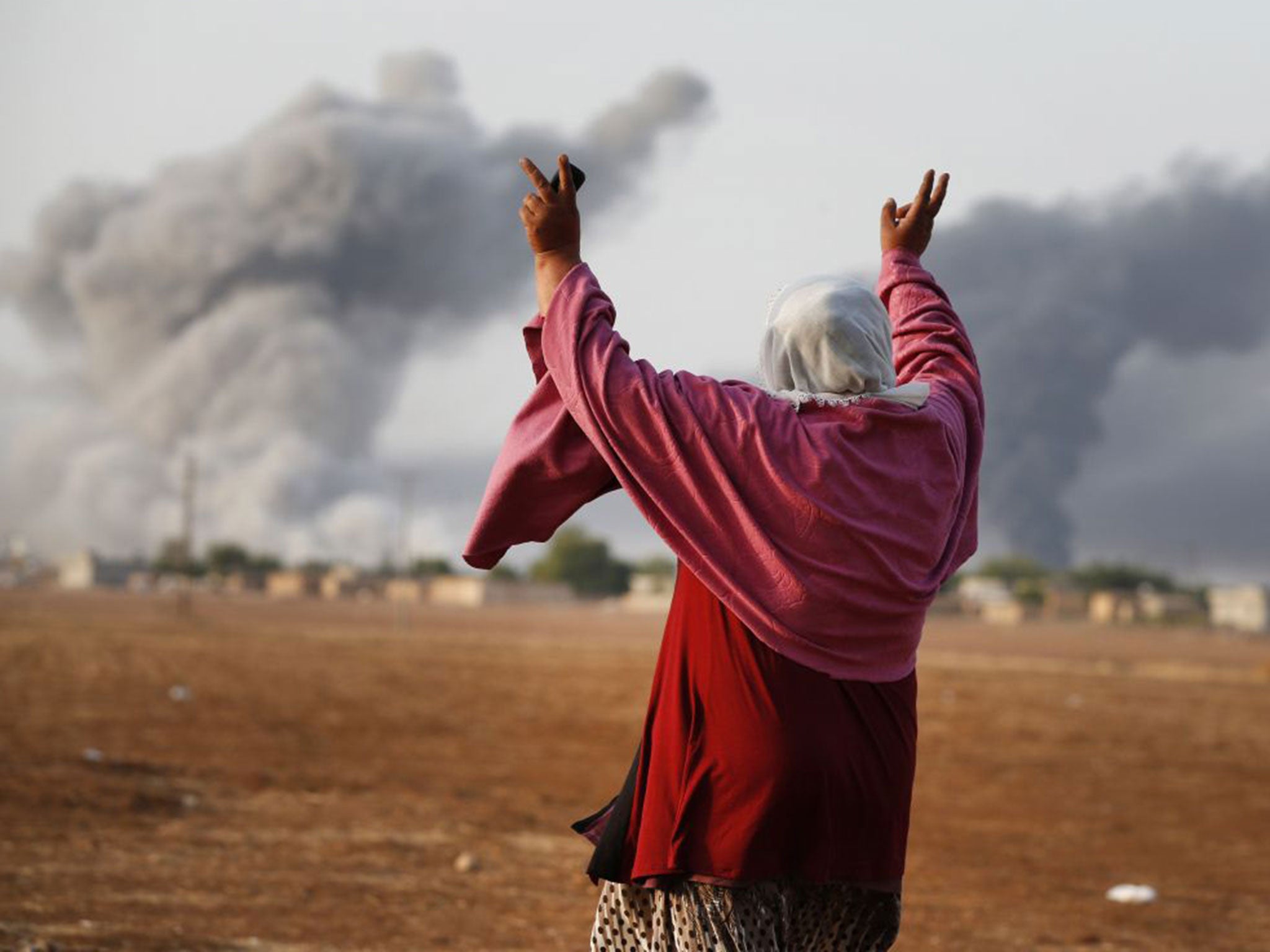Isis air strikes: Tensions grow between Ankara and Washington over use of air bases for attacks
Conflicting narratives highlight tensions that have grown up between the two countries

The United States is struggling to put aside misunderstandings between itself and Turkey, after officials in Ankara contradicted a claim by top officials that the two countries had reached a deal to give the Pentagon full use of a key Turkish airbase for strikes against Isis.
The conflicting narratives highlighted the tensions that have grown up between Ankara and Washington over both the rebellion against the regime of Bashar al-Assad in Syria and the subsequent emergence of Isis.
On Sunday, US officials said a deal had been reached whereby Turkey would both engage in training several thousand moderate Syrian rebels within its borders and approve the use of Incirlik airbase near the Syrian border for attacks on Isis.
But while it appeared there might be agreement on training rebels, the question of using Incirlik appeared still to be in doubt.
Indeed, the office of Ahmet Davutoğlu, the prime minister, told Reuters that there was no deal over Incirlik.
The “talks, therefore, continue as we look into things we can do together while covering all these aspects”, a Turkish official said. The US has been frustrated that its efforts to build an international coalition to tackle Isis forces from the air have been partly hobbled by the difficulty of getting Turkey engaged. An agreement of the kind US officials had been describing would be pivotal, in part because it would make a statement about Turkey being on board. It would also matter militarily – at present, US missions against Isis are being flown from undisclosed locations in the region.

There are other pressures on Turkey to take a more active role. In particular, there is a growing danger that its fragile, nine-year peace deal with Kurdish insurgents could come undone as Kurdish leaders see on the one hand ethnic Kurds taking the lead in fighting Isis on the ground, particularly defending the Syrian city of Kobane, hard up against the Turkish border, while the Turkish government declines to order its military to intervene.
While Turkish and US interests in the crisis may overlap partially they are far from fully aligned. Most broadly, while Barack Obama has limited military operations to attacking Isis from the air in Syria and also Iraq, the Turkish government remains adamant that finally toppling Assad is just as important as defeating Isis and that the two operations should be one and the same. “The Assad regime should be the target for a real solution in Syria,” Turkish President Recep Tayyip Erdogan said in an address to Istanbul’s Marmara University.
Meanwhile, Ankara considers the main Kurdish political grouping, the PKK, to be terrorists and of the same ilk as Isis. If Kobane finally falls to the continuing Isis assault against it, it would be a major setback, putting into doubt the viability of any US plan relying exclusively on air power and further kindling Kurdish fury over Turkey’s inaction.
Throughout the talks with the US, Turkey has pushed for the creation of a buffer area and no-fly zone along its border where rebels could be trained and where refugees from Syria could be sheltered without danger of military attack by Isis or Syrian regime forces. The Pentagon and the White House have resisted the idea, though some in the State Department have suggested there may be merit in it.
“We approach this issue from a comprehensive perspective, including safe havens and a no-fly zone to be established in the region,” said an official in the Prime Minister’s office. “We don’t see it at this point as essential to the goal of degrading and ultimately destroying Isis,” Susan Rice, the National Security Advisor, said on Sunday, “but we’ll continue to talk to the Turks and entertain any specific proposals that they may have.”
Join our commenting forum
Join thought-provoking conversations, follow other Independent readers and see their replies
Comments
Bookmark popover
Removed from bookmarks